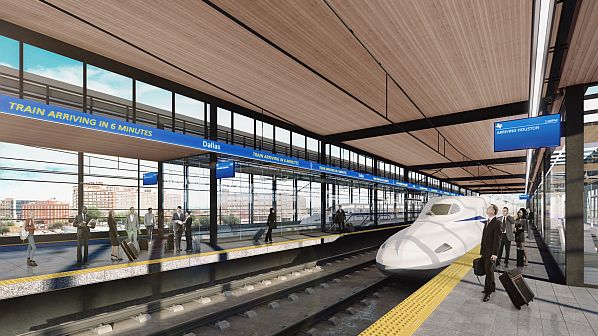The landowners argued that the Texas Central high-speed project to develop the 390km Dallas - Houston 320km/h line was not a railway and therefore did not have the rights associated with a railway, including eminent domain and access to property for surveyors.
“This decision is rooted in state law that allows survey access and use of eminent domain by railroads, pipelines, electrical lines and other industries that provide for the public good and a strong economy,” says Mr Carlos Aguilar, CEO of Texas Central. “This decision confirms our status as an operating railroad and allows us to continue moving forward with our permitting process and all of our other design, engineering and land acquisition efforts.”
Texas Central completed some of the land surveys required by the federal agencies in 2019 and carried out an environmental review of the project. Texas Central says this enabled it to plan a route “that is efficient, considerate of the environment through Central Texas and impacts the fewest property owners.” The final Environmental Impact Statement on the project is scheduled to be published by the Federal Railroad Administration later this month.
“Texas Central confirms that it will always respect Texas landowners’ rights and will follow due process,” Aguilar says. “Today’s ruling supports the enormous amount of work Texas Central has done to date. Texas has the capacity, drive and population growth needed to make the Texas High-Speed Train successful and it’s that momentum that is pushing the nation’s first high-speed train forward.”
Texas Central hopes to start construction later this year with a view to starting testing and commissioning in 2025 to enable the line to open in 2026.
For more data on high-speed rail projects, subscribe to IRJ Pro.

